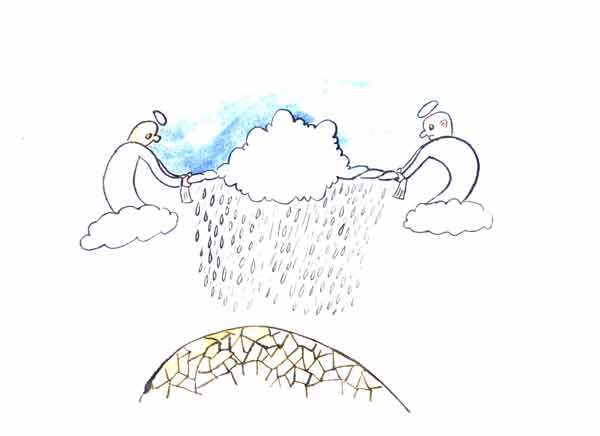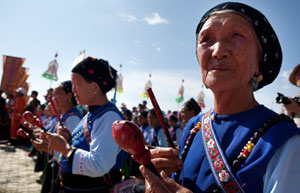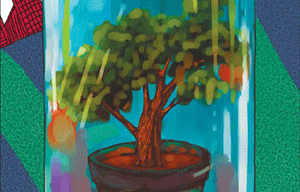Villagers pin hopes on tourism after rice farming ban
Updated: 2011-10-23 17:04
(Xinhua)
|
|||||||||
|
 Cartoon by Chu Jinhua[cartoon.chinadaily.com.cn] |
But 64-year-old Zhao Ziquan, a resident of the village of Ciyingzi in Chicheng county, can tell you exactly when his family stopped growing rice. It happened in 2006, when the occupation was banned in Chicheng out of water scarcity concerns.
Located about 170 km away from Beijing, Chicheng is a major supplier of drinking water for the capital city. The ban improved the quantity and quality of water available in Chicheng, allowing the county to send an extra 20 million cubic meters of water each year.
However, the ban came at an expense, with more than 6,000 hectares of rice fields rendered unusable. Zhao, like many other local farmers, has had to try hard to adapt.
"I own seven mu (about 0.5 hectares) of land," he said. In the past, Zhao could earn as much as 2,300 yuan ($ 354) per mu from growing and selling rice. He has been forced to switch to growing corn, decreasing his income to just 1,500 yuan per mu.
Environmental problems have also taken a toll on local farmers.
"Chicheng gets hit by droughts nine out of every ten years," Zhao said. However, he added that it was still relatively easy to grow rice, even during the droughts.
"Rice could still grow as long as the Heihe River did not completely dry up," Zhao said.
Corn, on the other hand, is very difficult to grow during dry periods. "This year, output was reduced by 10 to 20 percent," Zhao said.
The local government has paid local farmers compensation since the ban was enacted, giving each farmer 550 yuan this year.
"The government promised to compensate us for six years after 2006," Zhao said. He added that he is still wondering if he will receive any compensation next year.
To that end, Zhao and others have pinned their hopes on tourism, hoping that the industry might allow them to improve their livelihoods. Chicheng boasts several forest parks, including the Heilongshan National Forest Park, named for the nearby Heilongshan Mountain.
The county has already seen its tourism numbers increase in recent years, with the number of annual visitors soaring from 380,000 to 508,000 between 2008 and 2010.
In the village of Laozhazi, located at the foot of the mountain, 56-year-old Qiao Hui has been busy decorating houses in the hopes of opening a motel for tourists.
"After the rice farming ban, we had to think of some other ways to make money," he said.
Fortunately, he said, the ban has helped improve the local environment.
"Now that water levels have risen in the river and the mountain has become greener, we have shifted our attention to tourism," Qiao said. He said that seven of his fellow villagers have already opened motels of their own.
Chicheng's Party chief Li Min has vowed to make Chicheng a "tourism county," aiming to attract visitors from Beijing and beyond.
Zhang Yungang, head of the Chicheng Tourism Bureau, said he believes the development of tourism is a good way to protect the environment and preserve water resources.
"By developing tourism, local people can boost their incomes and eventually give up farming altogether," he said.
However, Zhang admitted that Chicheng's infrastructure needs to be improved before the area can attract more visitors.
"We do need more money to upgrade the roads and hotels in Chicheng," he said.
Many of the region's scenic spots are far apart from each other, Zhang said, making it difficult for tourists to hop from one area to the next.
Last year, Chicheng spent 2 million yuan to build a road linking a wetland park in Fengning and the Heilongshan National Forest Park. A highway from Chicheng to Beijing will shorten the driving distance between the two areas by more than 40 km after it is completed.
However, there is still no road to bring tourists to Zhao's village.
"Many people, including my children, are working in Beijing, but I am old and I don't want to leave home," he said.
"If I have no other things to do and they cancel our compensation next year, I might have to go back to growing rice," he said.










